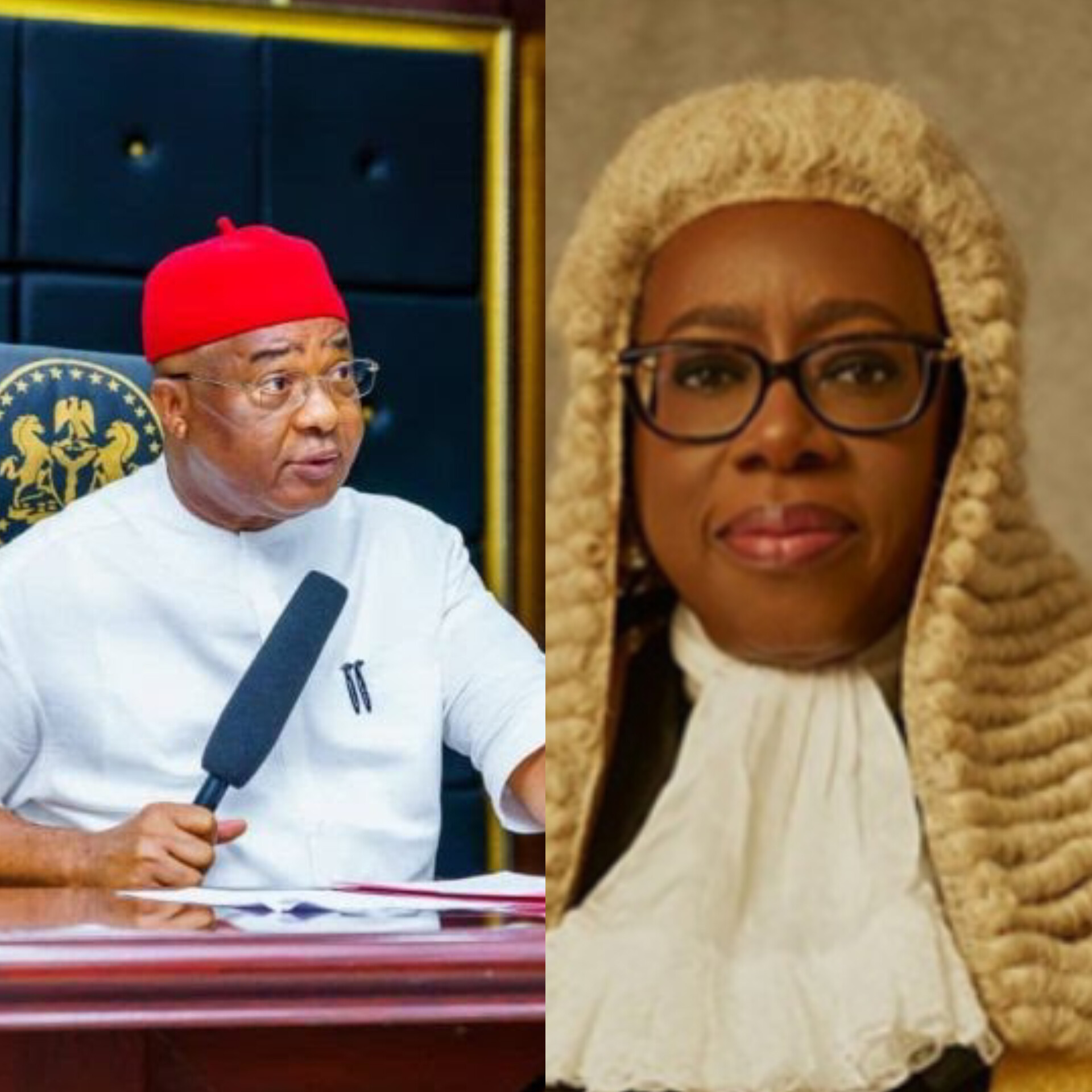Newly appointed Chief Justice of Nigeria Kudirat Kekere-Ekun was one of seven justices who overturned the 2019 Imo State governorship election result.
Following the election in 2019, the Independent National Electoral Commission (INEC) announced that Emeka Ihedioha of the Peoples Democratic Party (PDP) won the election, polling a total of 273,404 votes ahead of the first runner-up. Uche Nwosu of the Action Alliance (AA), the first runner-up, polled 190,364. The All Progressives Grand Alliance (APGA)’s Ifeanyi Ararume and All Progressives Congress (APC)’s Hope Uzondima came third and fourth with 114,676 and 96,458 votes respectively.
In a surprising turn of events, the ruling was disputed not by the second or third candidate but by Uzodinma who came fourth. He would later file an electoral tribunal petition against INEC’s conclusions.
Justices Ibrahim Tanko Muhammad, Nwali Sylvester Ngwuta, Olukayode Ariwoola, Amiru Sanusi, Amina Adamu Augie, Uwani Musa Abba Aji and Kudirat Motonmori Olatokunbo Kekere-Ekun presided over the case at the Supreme Court. Kekere-Ekun announced the ruling.
Imo has 27 local government areas, 305 electoral wards and 3,523 polling units. INEC scrapped the results of 252 polling units due to electoral violence, while they also excluded results from 388 polling units, and announced results from the remaining 2,883 units.
CONTRAVENTION OF TWO LOWER COURT
Before the Supreme Court saga, Uzodinma had challenged the results in a federal high court and an appeal court. The two courts’ final ruling had been the same. But this time, the Supreme had a different view of the whole issue.
Rather than totally doing away with the lower courts’ rulings, the Supreme Court said that it did not “lightly set aside the concurrent findings of the two lower courts”, however, it would disturb their findings “where it is satisfied that there is an apparent error on the face of proceedings showing or manifesting that such findings are perverse.”
The ruling also instantiated that the decisions of the two lower courts would be deemed “perverse” if they considered matters which they “ought not to have taken into account” or where their decisions have led to a “miscarriage of justice.”
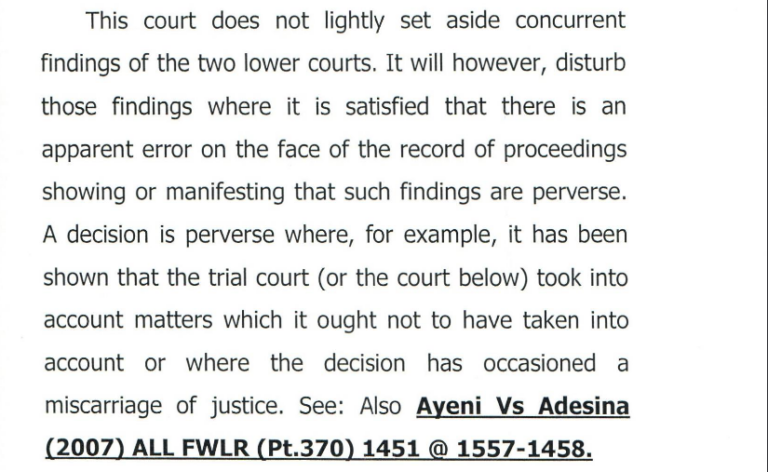
The exhibit tendered as evidence to the Supreme Court showed Uzodinma had scored a total of 213,695 votes from the excluded polling units. This piece of evidence only showed the votes for him and Ihedioha, whom he claimed had scored 1,903 votes from those units.
INEC SIMPLY HAD NO COUNTER EVIDENCE!
INEC challenged that since the APC’s exhibit did not show that they omitted results from the polling units that they had announced results from, then the exhibit did not hold water.
However, the Supreme Court recognised the APC’s exhibit on the grounds that INEC did not tender any document or witness to challenge the appeal.
“Although they relied heavily on the assertion that Exhibits PPP1 – PPP366 were fake, no evidence was adduced to prove the assertion at all, let alone beyond reasonable doubt. The respondent failed to produce the ‘genuine’ results as pleaded,” Kekere-Ekun ruled.
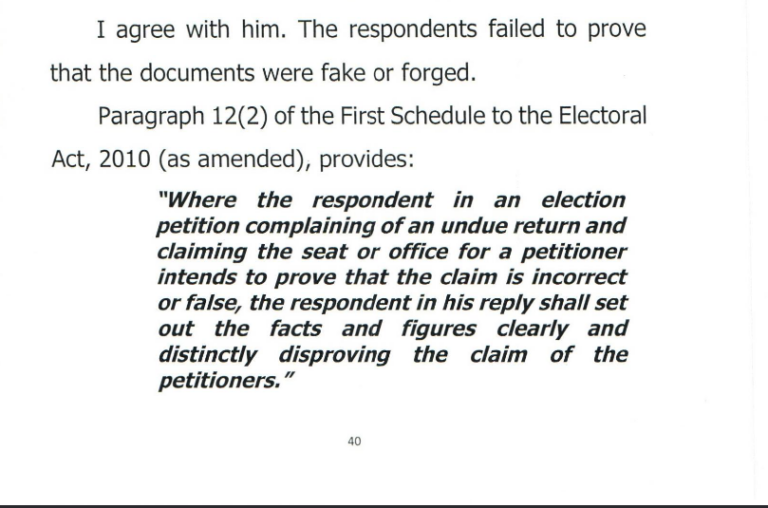
In another section of the ruling, Kekere-Ekun stated that INEC “failed woefully to tender the results it termed ‘genuine’, which would have rebutted the presumption of regularity in favour of the documents” tendered in by the APC.

‘AND THE LAST SHALL BECOME THE FIRST’
On these grounds, Kekere-Ekun then ruled that the court had admitted the evidence tendered by the APC and, therefore, proclaimed Uzodinma the winner of the 2019 Imo gubernatorial election.
“It is hereby declared that votes due to the Appellants (i.e Sen. Hope Uzodinma & All Progressives Congress) from the 388 polling units were wrongly excluded from the score ascribed to them,” Kekere-Ekun ruled.
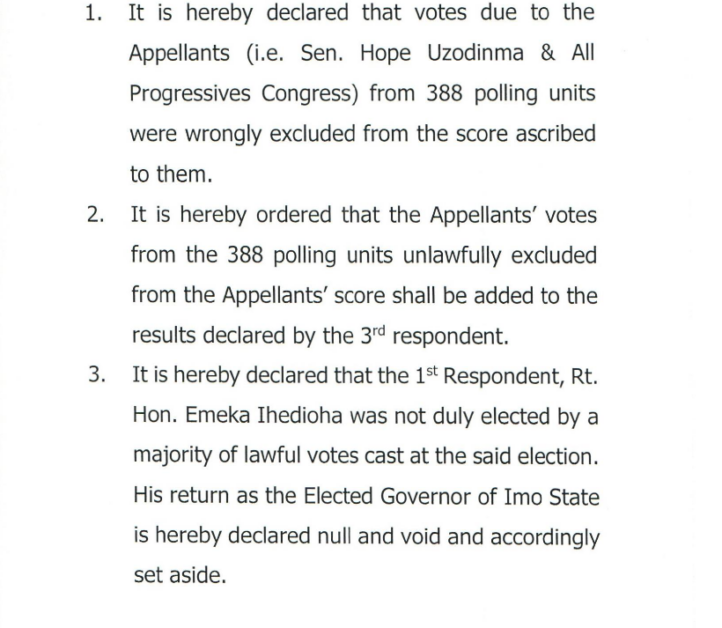
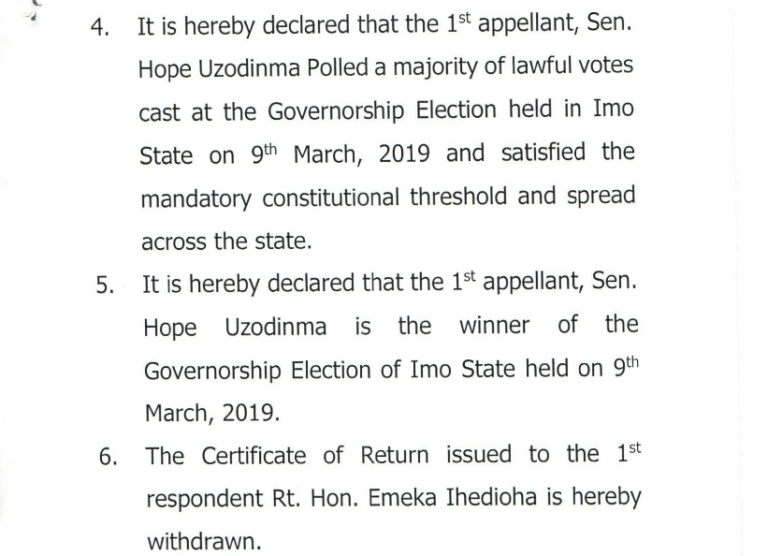
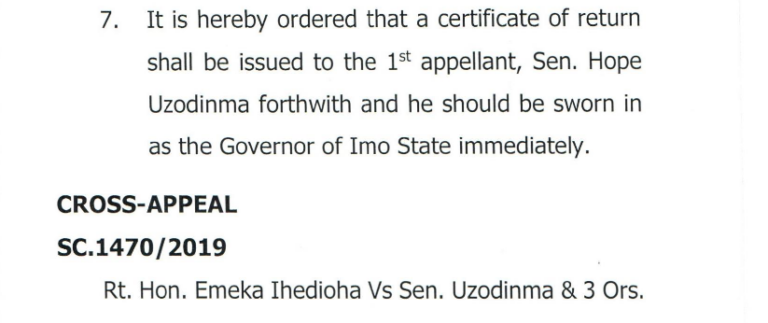
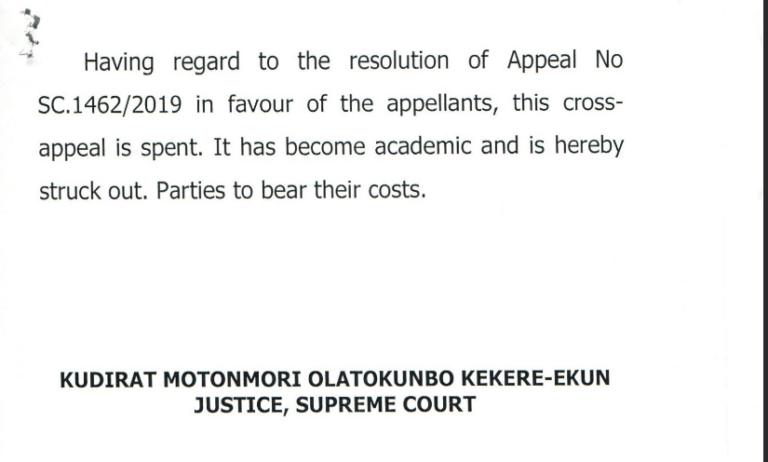
DISSENSION TRICKLED IN
“That moment is a defining moment for Nigeria’s democracy,” Ihedioha said after the ruling.
He believed that such a defining moment puts the apex court and INEC on public trial. Two months later, Ihedioha’s application to have the Supreme Court’s ruling reversed was dismissed.
The PDP also later took to the streets to protest what they deemed an injustice.

Photo credits: Vanguard
Another reaction that followed the ruling was an article by lawyers Godwin Emeka Ngwu and Onyemaechi Ogiri.
The lawyers reviewed the ruling while stating that, though it might have been deemed illogical by the public to have a fourth-place candidate displace an election winner through a tribunal, the court would not rule by emotions; agreeing that the apex court was correct in its ruling.
Credit: FIJ

